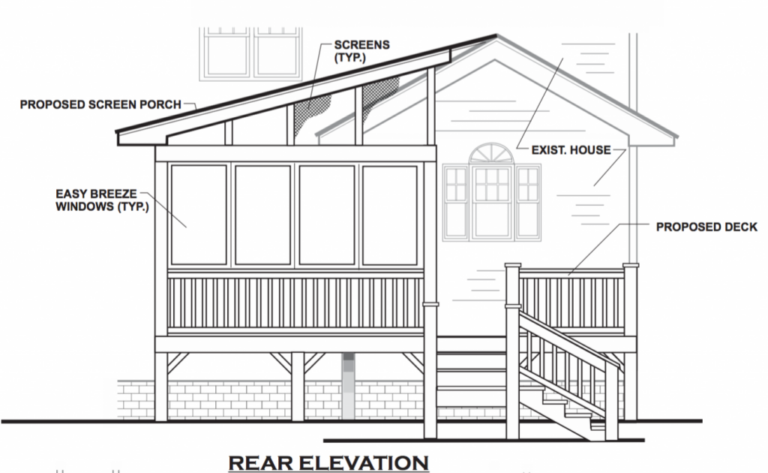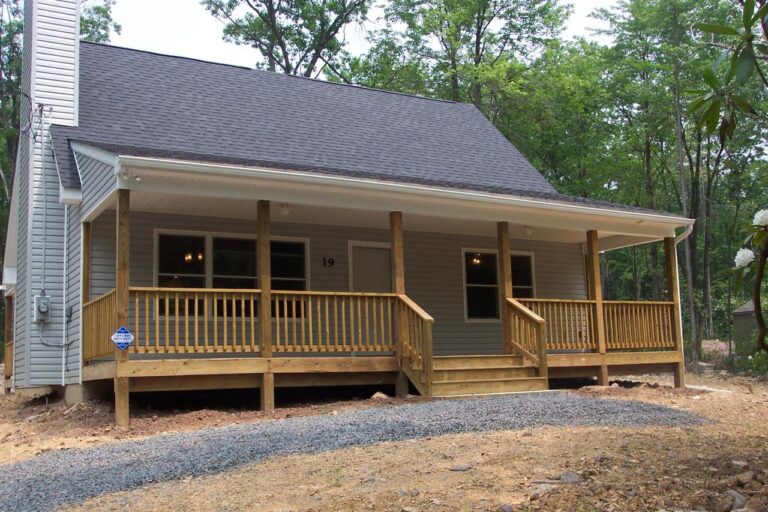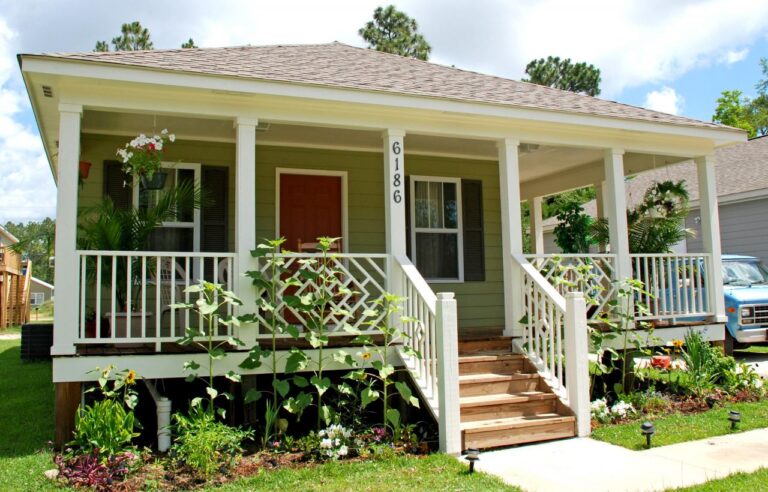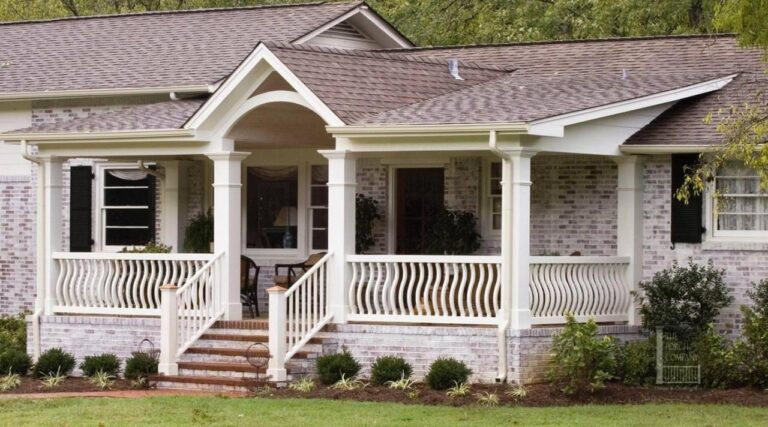Full Front Porch House Plans
Full-front porch house plans offer a timeless appeal, blending classic architectural charm with modern functionality. These plans go beyond mere aesthetics; they invite you to envision a home where relaxation and community intertwine. From the Victorian elegance of a wraparound porch to the rustic charm of a Craftsman-style design, the possibilities are as diverse as the homeowners themselves. This exploration delves into the design, construction, and landscaping considerations for creating your dream home with a captivating full-front porch.
We’ll examine various architectural styles, material choices, and landscaping options to help you bring your vision to life. Understanding building codes and regulations is crucial, and we’ll guide you through that process as well. Ultimately, the goal is to empower you with the knowledge to build a home that reflects your unique style and provides a welcoming space for years to come.
Understanding Full Front Porch House Plans
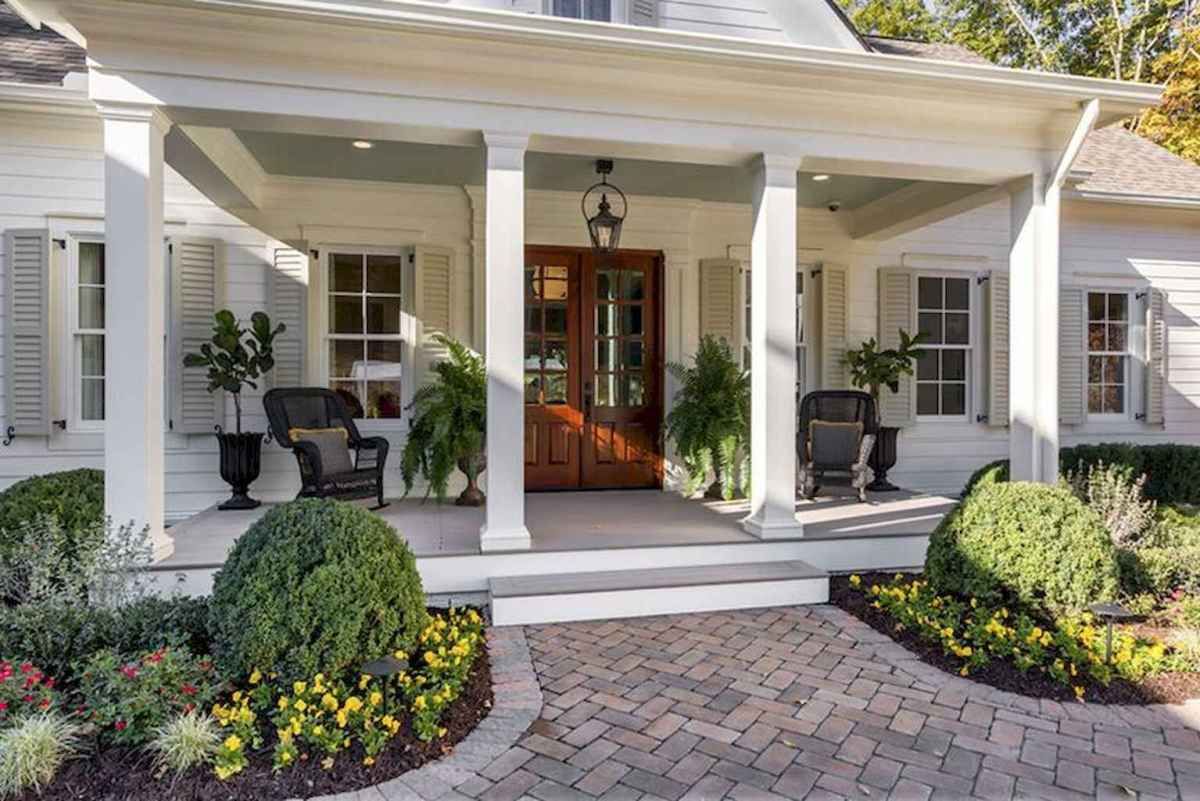
Source: pinimg.com
The allure of a home with a full-front porch is undeniable. It evokes a sense of classic charm, inviting relaxation, and enhanced curb appeal. This article delves into the design, construction, and landscaping considerations for homes featuring this timeless architectural element.
Defining “Full Front Porch”
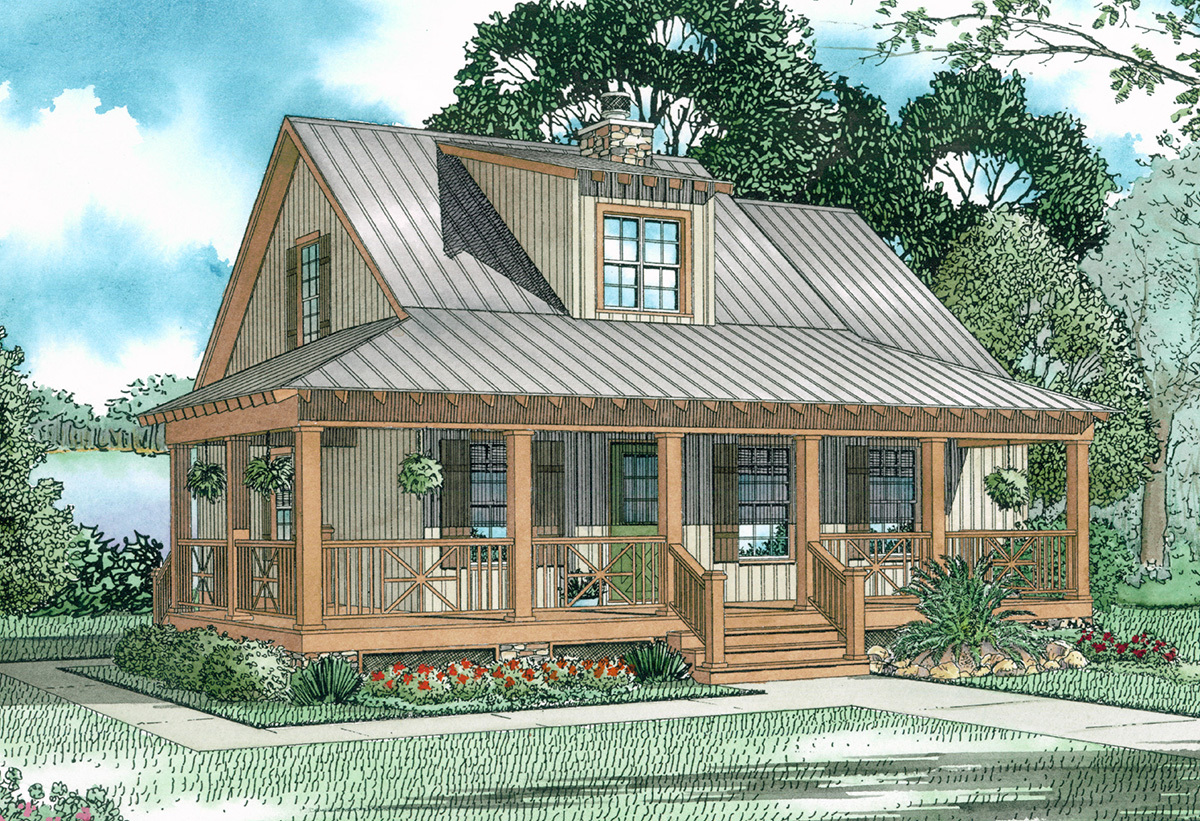
Source: amazonaws.com
A full-front porch extends across the majority of the house’s façade, often spanning its entire width. Key architectural characteristics include a substantial roofline extending from the main house to cover the porch, often supported by columns or posts. The porch’s depth is considerable, typically allowing for comfortable seating and often providing ample space for outdoor furniture. Various architectural styles incorporate full-front porches with unique features. For instance, Victorian porches are known for elaborate detailing, and intricate woodwork, and often include decorative railings and spindlework. Craftsman porches showcase simpler, yet elegant designs, featuring sturdy columns, exposed beams, and built-in seating. Farmhouse porches tend to be more utilitarian, with wider, simpler designs, often featuring sturdy wooden railings and ample space for rocking chairs.
Typical dimensions vary significantly depending on the house’s size and architectural style. However, a depth of at least 8 feet is common to comfortably accommodate seating, while the width usually mirrors the house’s frontage. Features often include built-in seating, ceiling fans for ventilation, lighting fixtures for evening ambiance, and decorative elements such as planters or hanging baskets.
House Plan Styles Featuring Full Front Porches
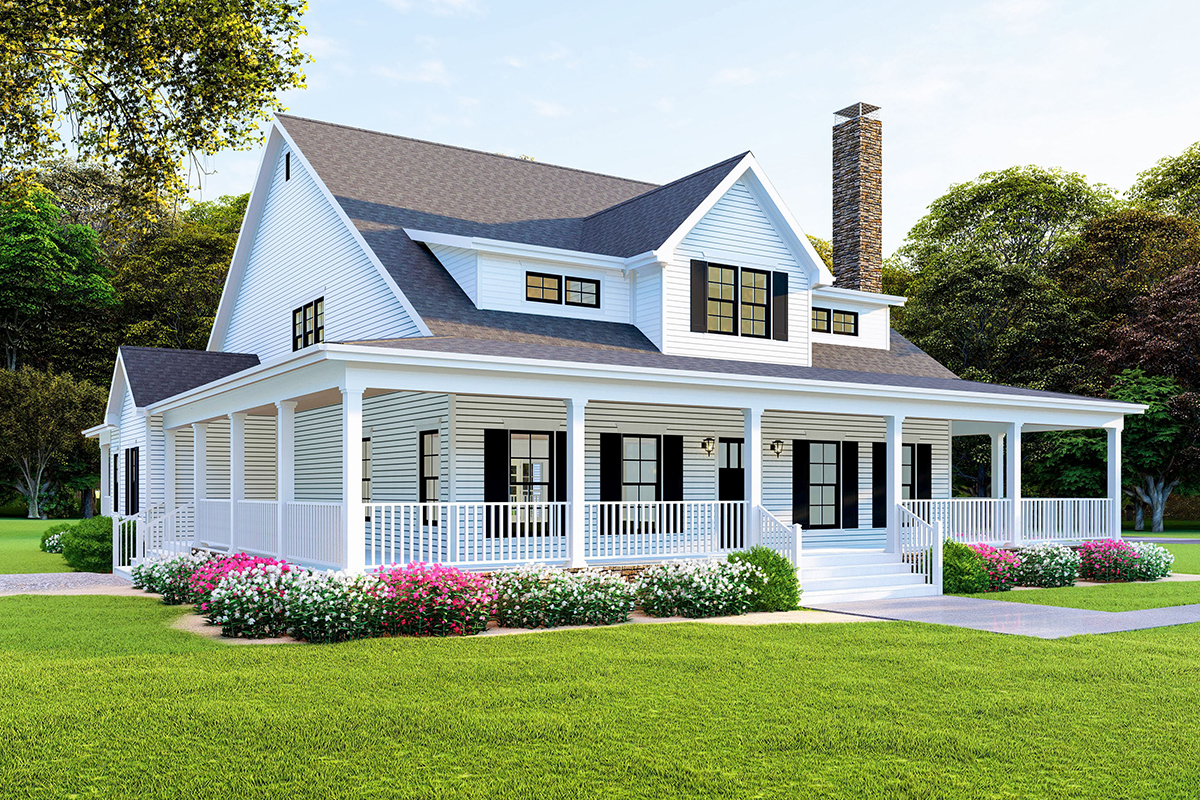
Source: architecturaldesigns.com
Three distinct house plans incorporating full-front porches, each reflecting a different architectural style, are Artikeld below.
| Feature | Victorian Style | Craftsman Style | Farmhouse Style |
|---|---|---|---|
| Square Footage | 2,500 sq ft | 1,800 sq ft | 2,200 sq ft |
| Bedrooms | 4 | 3 | 3 |
| Bathrooms | 3 | 2 | 2 |
| Porch Size (approx.) | 20ft x 12ft | 16ft x 10ft | 24ft x 8ft |
The Victorian-style plan offers more elaborate detailing and a larger porch, prioritizing aesthetic appeal. The Craftsman style plan provides a balance between functionality and aesthetics, with a slightly smaller porch. The Farmhouse style plan emphasizes functionality and spaciousness, with a wide, practical porch ideal for outdoor living.
Porch Design Considerations, Full front porch house plans
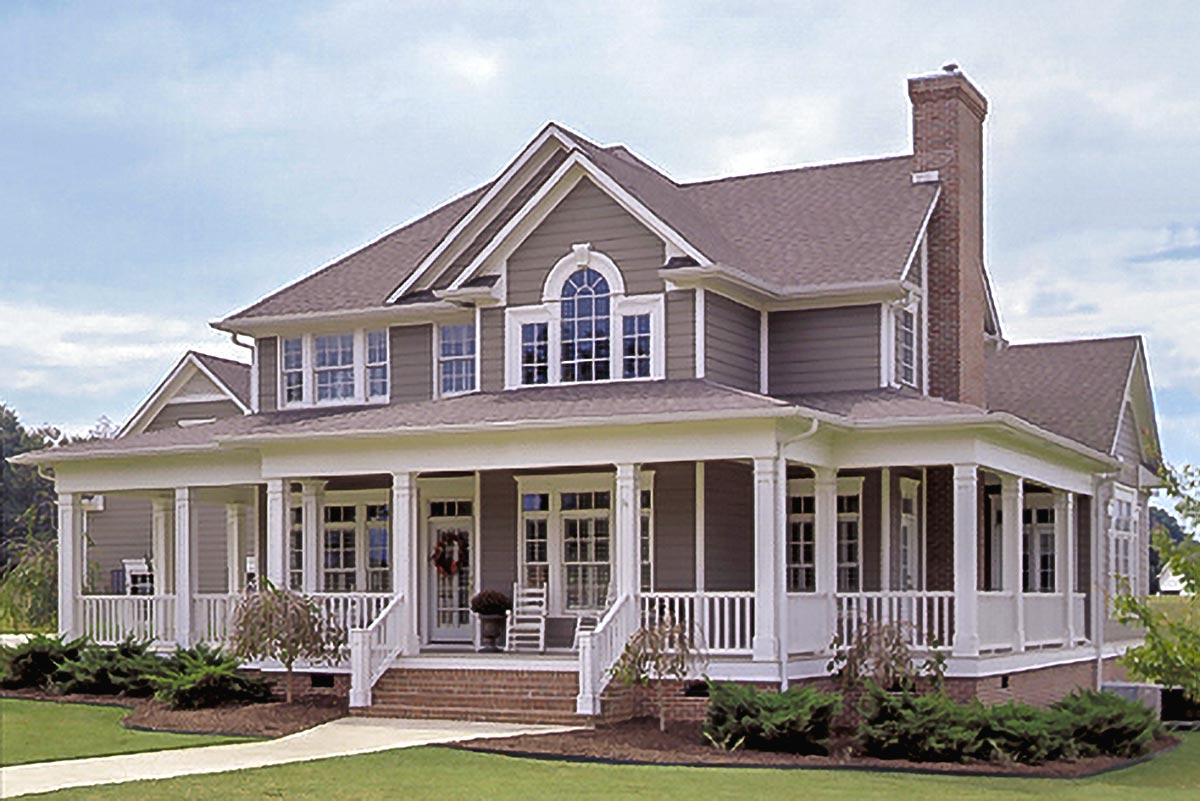
Source: amazonaws.com
Several material choices and design elements influence the porch’s functionality and aesthetics.
- Materials: Wood offers classic charm and versatility, but requires regular maintenance. Composite materials provide low-maintenance alternatives with durability and weather resistance. Stone or brick can offer a more robust and long-lasting option, although they are typically more expensive.
- Roof Styles: Gable roofs provide excellent protection from the elements, while hip roofs offer a more streamlined appearance. Flat roofs offer a modern aesthetic but may require more robust waterproofing.
- Enhancing Functionality: Built-in seating maximizes space and provides comfortable seating arrangements. Ceiling fans improve air circulation, while lighting fixtures enhance evening ambiance and safety. Consider adding electrical outlets for convenience.
Integration with Landscaping
Landscaping significantly impacts the overall aesthetic appeal of a home with a full-front porch. Careful plant selection and placement can enhance the home’s curb appeal and create a welcoming atmosphere.
A landscape plan might include foundation plantings of low-growing shrubs and perennials to soften the house’s lines. Taller shrubs and trees can be strategically placed to provide shade and privacy without obstructing views from the porch. Hardscaping elements, such as pathways, patios, and retaining walls, can enhance functionality and add visual interest. Outdoor lighting can highlight architectural features and create a warm, inviting ambiance in the evening. Different landscaping styles, such as formal gardens, cottage gardens, or xeriscaping, can be tailored to complement the house’s architectural style. For example, a formal garden might complement a Victorian home, while a cottage garden might be more suitable for a Craftsman or Farmhouse style.
Building Codes and Regulations
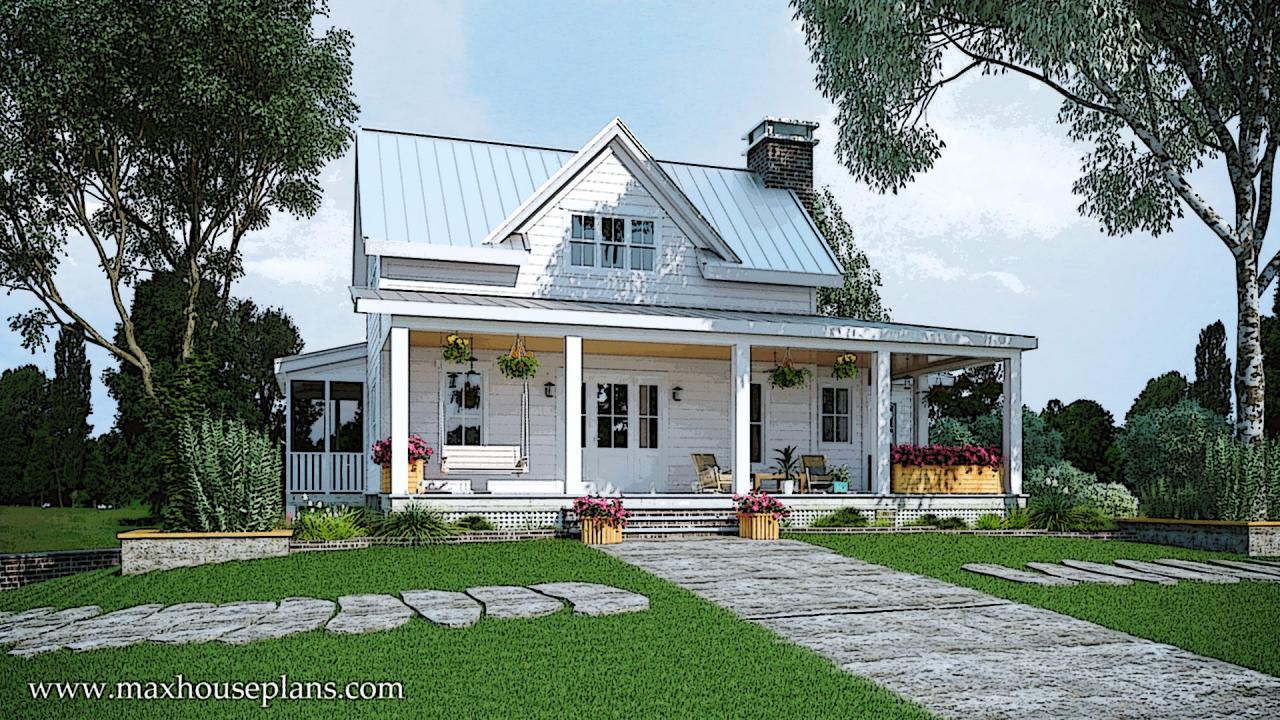
Source: maxhouseplans.com
Before constructing a full-front porch, it’s crucial to understand and comply with local building codes and regulations. These codes often address issues such as structural integrity, accessibility, and fire safety. The process of obtaining necessary permits typically involves submitting detailed plans to the local building department for review and approval. Ensuring structural integrity involves using appropriate materials and construction techniques, meeting load-bearing requirements, and adhering to established safety standards. Regular inspections by qualified professionals are essential throughout the construction process.
Clarifying Questions
What is the average cost of building a full-front porch?
The cost varies significantly based on size, materials, and location. Expect a range from several thousand to tens of thousands of dollars.
How much square footage should my porch be?
The ideal size depends on the house’s size and your intended use. Consider at least 100 square feet for comfortable seating and movement.
Can I add a full-front porch to an existing house?
Yes, but it requires careful planning and may necessitate obtaining permits and adhering to building codes. Consult with a contractor to assess feasibility.
What are some energy-efficient options for porch roofing?
Consider using energy-efficient materials like insulated metal panels or installing solar shading devices to reduce heat gain.
What are the implications of building a porch that extends beyond the house’s footprint?
This may require additional permits and structural engineering considerations due to potential setbacks and weight distribution issues. Check local zoning regulations.
